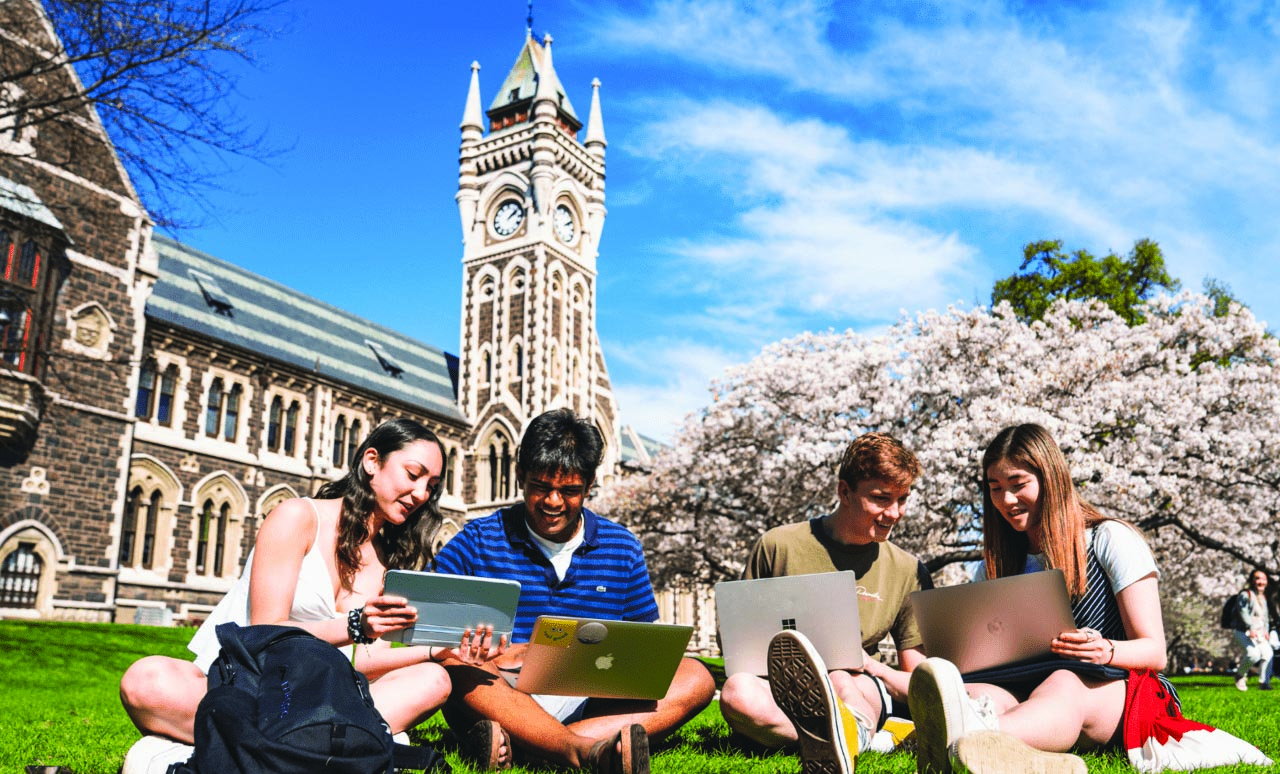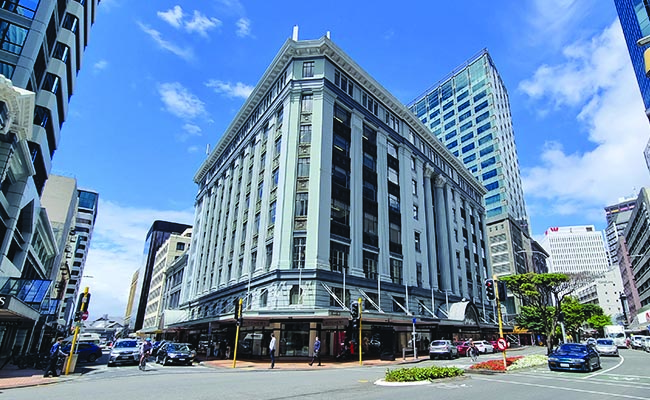University of Otago, New Zealand
RESHMA RAVISHANKER
Founded in 1869, UoO is ranked among the Top 1 percent of higher education institutions worldwide (#214) in the latest QS World University Rankings 2025

UoO’s Dunedin campus: enviable global reputation
As New Zealand’s oldest varsity, the University of Otago (UoO, estb.1869) enjoys an enviable global reputation, especially in the southern hemisphere, for teaching and research excellence, particularly in the biological and health sciences. UoO is ranked among the Top 1 percent of higher education institutions worldwide (#214) in the latest QS World University Rankings 2025 and has been awarded QS’ highest possible 5 Stars Plus performance rating. Moreover, UoO boasts a high student success rate with 96 percent of graduates either employed or opting for further study, and for eight of the past 11 years, its faculty has won the New Zealand Prime Minister’s Supreme Award for Teaching Excellence.
Otago University is also one of the few Kiwi varsities with branch campuses in five major New Zealand cities — Dunedin, Wellington, Christchurch, Auckland, and Invercargill. However, the academic and administrative centre of the university is in Dunedin (admin capital of Otago province), where a majority of students are enrolled.
When it was founded 150 years ago, UoO was gifted 100,000 acres of pasture in scenic Dunedin as an endowment from the Otago Provincial Council with a charter to award degrees in arts, medicine, law and music. The university admitted its first batch of students in July 1871 with a faculty of three professors. Currently, this publicly-funded university boasts a student enrolment of 21,000 — with 3,000 students from 100 countries. Its four faculties of humanities, social sciences, business and sciences offer over 200 undergraduate and postgrad programmes. Famous alumni include three former prime ministers of New Zealand — Sir Robert Stout, David Lange and Bill English; authors Janet Paterson Frame and Juliet Marillier, and rugby football star Anton Oliver.
Dunedin. A city by the sea, Dunedin is essentially a university town — 25,000 of the city’s 130,000 residents are students. Endowed with white sandy beaches, bush-clad hills, tidal inlets and volcanic landforms, Dunedin is reputedly one of the most well-preserved Victorian and Edwardian cities in the southern hemisphere. Its public art gallery, which houses one of NZ’s best international collections, museums and libraries are among the world’s finest.
The heart of the city is lined with restaurants and sidewalk cafes. Modern shopping complexes trade alongside boutiques, galleries and weekly craft markets. Nature has endowed Dunedin with coastal colonies of shy, yellow-eyed penguins and the world’s sole mainland breeding colony of the Royal Albatross.
Dunedin also hosts major sporting events and its famous Carisbrook stadium is renowned internationally for rugby. The Kiwi passion for water sports is met by Dunedin’s natural harbour — ideal for wind surfing, yachting, kayaking, canoeing, rowing and fishing.
Dunedin’s climate is temperate. Summer temperatures range from 16°-23°C and winter from 8°-12°C with occasional snow.

UoO’s Wellington campus
Campus facilities. UoO has campuses in the country’s five major cities — Dunedin, Christchurch, Wellington, Auckland and Invercargill. The main Dunedin campus comprises a mix of historic and modern buildings that house the humanities, health sciences, business and sciences faculties. The campus also hosts world-class teaching and research labs, performance spaces, and the university’s showpiece Central Library, lecture halls, and sports facilities. The Christchurch and Wellington campuses offer health sciences, medicine, physiotherapy, research and postgraduate courses and the Auckland campus distance education. Invercargill hosts the College of Education and Health Sciences Study Hub at South Island Hospital.
There are a plethora of sports and recreation opportunities at UoO’s five campuses. Moreover, students have the option to enroll in over 140 student clubs and societies that host social and cultural activities around the year.
Admission. The minimum eligibility criterion for admission into Otago University’s undergrad programmes is successful completion of class XII/ Plus Two (minimum average score of 75 percent in class XII CBSE or CISCE exams, with a minimum of 60 percent in English). Moreover to demonstrate English language proficiency, students may be required to submit IELTS/TOEFL scores. Admission deadlines are August 14 (health sciences and medicine) and December 10 for other programmes.
For admission into postgraduate programmes, the admission requirements are completion of a bachelor’s degree and English language proficiency.
For further information, contact Riddhi Khurana, Country Adviser, [email protected]; website: www.otago.ac.nz.
Accommodation. Most student housing is located within a kilometre of the Dunedin campus creating a unique student hub. The hub includes Castle College, centrally located between campus and the city centre, and housing 192 ensuite rooms, multipurpose games area, and study centre. The Selwyn College and University College halls of residence are also sited on campus. Accommodation ranges from historic houses to multi-unit, purpose-built complexes. Students also have the option of living in private rental accommodation.
Degree programmes. UoO offers bachelor’s, Masters, and research programmes in four faculties (see box).
SCHOLASTIC OPTIONS AT OTAGO
Otago University offers over 200 undergrad and postgraduate degree programmes. Among them:
Humanities. Education, Law, Centre for Irish and Scottish Studies; Classics; English and Linguistics; History; Languages and Cultures; Philosophy; Theology; Geography; Dance; Music; Performing Arts; Theatre; Archaeology; Media, Film and Communication; Politics; Religion; Social Anthropology; Social and Community Work; Sociology, Gender Studies and Criminology; School of Māori, Pacific and Indigenous Studies
Sciences. Science Communication; Botany; Chemistry; Food Science; Geology; Human Nutrition; Marine Science; Mathematics and Statistics; Physics; Psychology; Zoology; Computing; Physical Education, Sport and Exercise Sciences; Surveying
Health Sciences. Dentistry; Health Sciences; Laboratory Science; Medical Sciences; Biomedical Sciences; Medicine; Pharmacy and Physiotherapy
Otago Business School. Accountancy and Finance; Economics; Management; Marketing, Tourism, Entrepreneurship; MBA
Tuition fees (per year): NZ$6,581-42,613
Living expenses: NZ$22,220-24,335
NB: NZ$=Rs.50

















Add comment